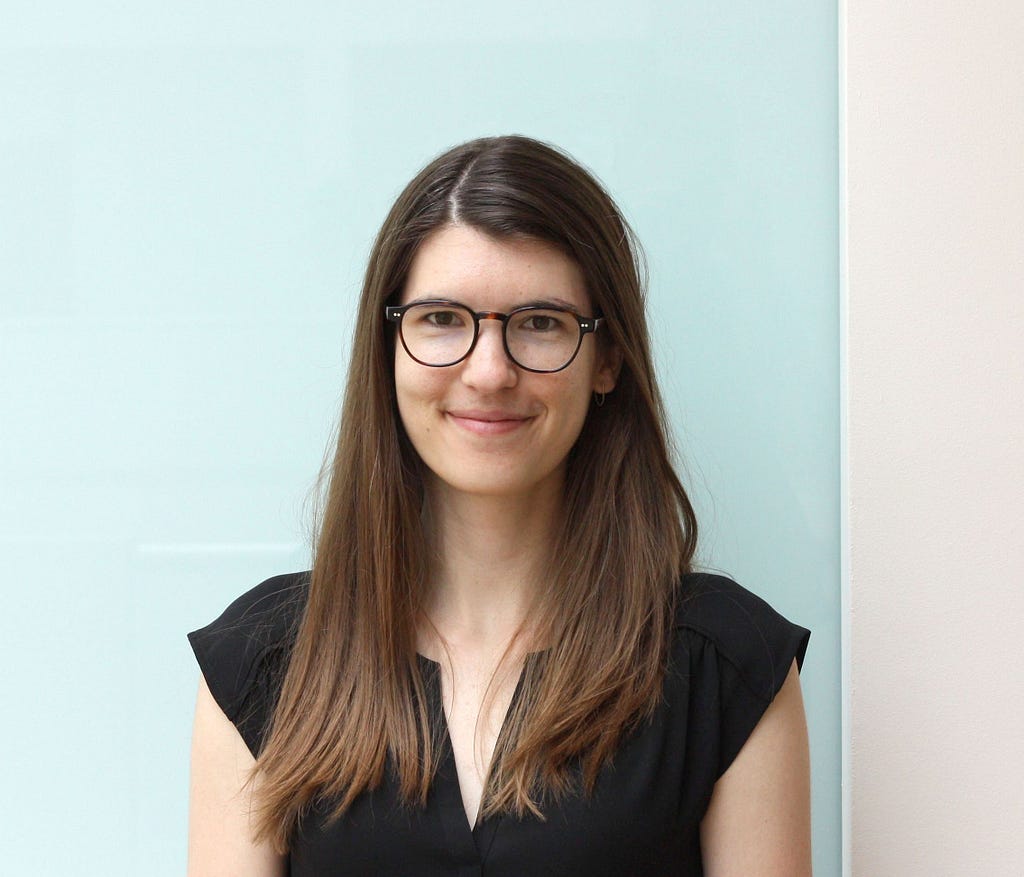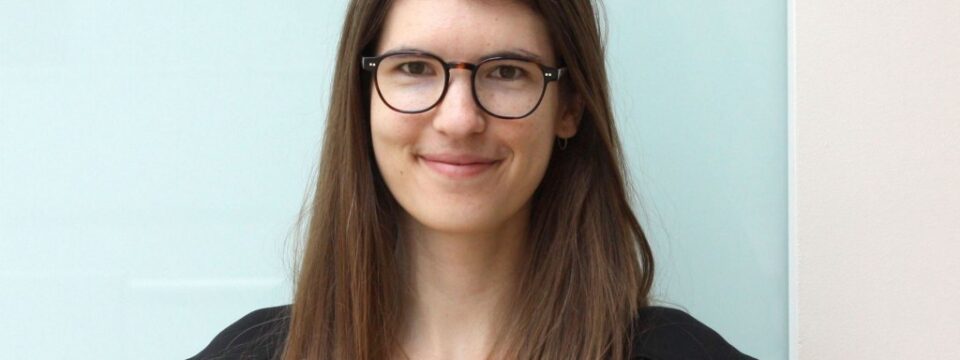Mental Health Champions: Why & How Laura Lewis of Boston University Is Helping To Champion Mental Wellness

First, get enough sleep! This is actually hard for us sleep researchers, because we need to do experiments at night, but it’s so important for your brain function. Second, I try to maintain strong social connections and community, which has been hard for everyone during these pandemic years. Third, changing habits around screen use can be very helpful. Fourth, taking breaks sometimes, even when your work is urgent, is ultimately wiser in the long run. Finally, everyone is different — what works for me may be different than others, so I try to stay attuned to what is helpful at the individual level.
As a part of our series about Mental Health Champions helping to promote mental wellness, I had the pleasure to interview Laura Lewis.
Laura Lewis is an Assistant Professor of Biomedical Engineering at Boston University. Her research develops new brain imaging techniques and uses them to understand how sleep affects brain health. Her work has been recognized with several major awards including the One Mind Rising Star Award.
Thank you so much for doing this with us! Before we dig in, our readers would like to get to know you a bit. Can you tell us a bit about how you grew up?
I grew up in Montreal, Canada, enjoying snowy winters! I went to a bilingual French-English school that focused on music and the arts. I discovered science as I went to college and was fascinated by the possibility of understanding how humans work — both the biology of our brains, as well as our thought processes and moods.
You are currently leading a social impact organization that is helping to promote mental wellness. Can you tell us a bit about what you or your organization are trying to address?
I lead a lab focused on imaging the human brain, and we focus on new technologies and scientific questions that we hope can help understand and address mental health. Sleep is fundamentally important for our brains, yet it is still mysterious — why we sleep, and how sleep improves mental health, is still not very well understood. Our lab’s goal is to discover the biology of how sleep changes our moods and brain function, so that we can one day improve this. Part of the challenge is that imaging the brain is very technically difficult, so one of our approaches is to improve brain imaging technology, so that we have the right tools to tackle this question.
Can you tell us the backstory about what inspired you to originally feel passionate about this cause?
Originally I began my scientific research by studying how general anesthesia affects the brain, which is a fascinating question — how can a drug create a state of unconsciousness so rapidly and reversibly? However, I realized that sleep is even more interesting. Sleep changes everything about how we interact with the world, but it’s also incredibly important for brain function and health. A single night of bad sleep is enough to worsen our mood and cognition; continuous sleep disruption has complex links with neuropsychiatric disorders. It became clear to me that we need to understand what sleep is doing to the brain in order to really understand what is happening in mental health conditions. We sleep with the same brains that we have when we’re awake, and understanding what sleep is doing for us is essential to make progress.
Many of us have ideas, dreams, and passions, but never manifest them. They don’t get up and just do it. But you did. Was there an “Aha Moment” that made you decide that you were actually going to step up and do it? What was that final trigger?
I actually wouldn’t say there was an Aha moment in my case. I felt a lot of uncertainty at every step about how to move forward in this path. One of the challenges of science is that you’re trying to discover something really unknown — so a lot of the time, you’re fumbling in the dark, wondering if you’ll ever make any progress. But over time, with each step we took, and trying to work on these problems from every angle, gradually we started to unfold a deeper understanding of sleep and the brain, which has been really exciting.
Can you share the most interesting story that happened to you since you began leading your company or organization?
We were astonished by a recent discovery we made about the brain during sleep: we discovered that when you fall asleep, a fluid called ‘cerebrospinal fluid’ starts to wash over your brain in large waves. We think these fluid waves might be able to help actively clear waste from the brain, contributing to brain health by sweeping away detrimental molecules. We are now investigating what happens during sleep and after sleep deprivation in people with depression. We received an exciting award from One Mind, a leading mental health nonprofit, which is allowing us to launch a new study to understand how brain function is affected by loss of sleep in patients with major depression, to understand if there may be a way to actively modulate the brain to help with mood disorders.
None of us can be successful without some help along the way. Did you have mentors or cheerleaders who helped you to succeed? Can you tell us a story about their influence?
I have been extremely lucky with my mentors in science — I could never have started this lab and this work without incredible guidance I’ve received from three people in particular. My Ph.D. mentor, Prof. Emery Brown at MIT, is absolutely brilliant, and he taught me to tackle very unusual, risky scientific questions in order to make the most progress. My mentors at my next institution, Prof. Bruce Rosen and Prof. Jonathan Polimeni at the Martinos Center at Massachusetts General Hospital, were incredibly formative in my career and in this scientific trajectory. Part of their help was in helping me figure out the right technological opportunities and new ways of doing brain imaging; and part was from providing really insightful, constructive criticism. I’ve noticed that they had such a large impact in my life because they have a very generous approach to mentoring — their constant goal was to help me succeed at tackling these problems, and I could never have done it without their help.
According to Mental Health America’s report, over 44 million Americans have a mental health condition. Yet there’s still a stigma about mental illness. Can you share a few reasons you think this is so?
Mental health conditions are so common, and it’s discouraging to see that stigma can still persist. I think one reason is that people often haven’t recognized that mental health is truly about health. Our brains underlie our mental health, and I hope that discussing this connection might help alleviate this issue. For example, a key aspect of our work is to understand how something we all do — sleep — is so involved in everyone’s mental health because of how strongly it affects the brain, and our Rising Star award from One Mind will help us understand how sleep affects mood and brain function in depression.
In your experience, what should a) individuals b) society, and c) the government do to better support people suffering from mental illness?
At the individual level, we can support our friends and ourselves when mental health challenges arise — knowing that this is a health challenge that should not be stigmatized, and that getting help is essential. This problem is too big for individuals alone though. Society and the government need to develop infrastructure to support people who are seeking treatment; right now it can be very difficult to access, and we need to improve availability and affordability so that everyone can reach the treatment they need. In addition, the government already invests in research on mental health and it’s critical to continue this. Organizations like One Mind provide essential support to launch new research directions; these exciting new findings then need to be followed up by government support to conduct large-scale research to eventually be able to help patients.
What are your 5 strategies you use to promote your own wellbeing and mental wellness? Can you please give a story or example for each?
First, get enough sleep! This is actually hard for us sleep researchers, because we need to do experiments at night, but it’s so important for your brain function. Second, I try to maintain strong social connections and community, which has been hard for everyone during these pandemic years. Third, changing habits around screen use can be very helpful. Fourth, taking breaks sometimes, even when your work is urgent, is ultimately wiser in the long run. Finally, everyone is different — what works for me may be different than others, so I try to stay attuned to what is helpful at the individual level.
What are your favorite books, podcasts, or resources that inspire you to be a mental health champion?
I actually love to read fiction as a way of thinking about diverse human experiences. The right book can really help you understand a completely different perspective and way of living in the world, and the urgent need for support for people in mental health crises. My most recent read was Normal People by Sally Rooney — it’s a really compelling portrait of two people growing up, and gently weaves in the mental health challenges they face as individuals.
If you could tell other people one thing about why they should consider making a positive impact on our environment or society, like you, what would you tell them?
Mental health affects all of us — our friends, our family, and ourselves. We need to act as a community to improve this for everyone’s sake.
How can our readers follow you online?
I am on Twitter, @lauradata, and also our lab website posts our latest work, at https://www.lewisneurolab.org/
This was very meaningful, thank you so much. We wish you only continued success on your great work!
Thank you!
Mental Health Champions: Why & How Laura Lewis of Boston University Is Helping To Champion Mental… was originally published in Authority Magazine on Medium, where people are continuing the conversation by highlighting and responding to this story.
